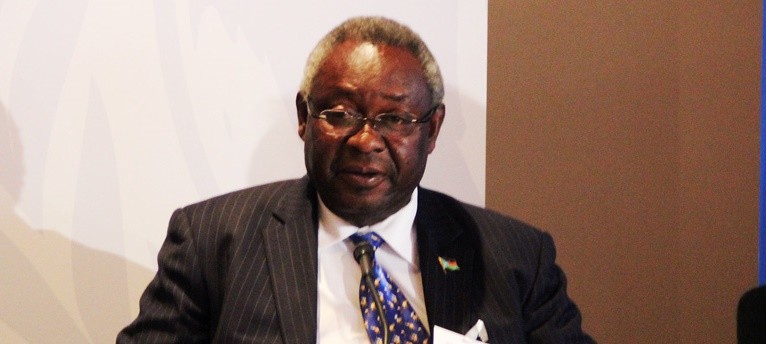A senior SPLM member has formed a new political party in the Sudanese capital Khartoum, accusing the ruling SPLM faction led by President Kiir of failing to implement a reform agenda and the 2015 peace accord.
Prof. Elias Nyamlell, former deputy minister of foreign affairs announced the formation of the “Al Haq” party after he says promises to reform the ruling party failed. The new party is not armed but it supports the use of force to overthrow the regime.
Nyamell told Radio Tamazuj in an interview that he decided to form his own party after the SPLM leadership failed to reform the party and committed human rights abuses. The politician accused Kiir’s government of killing innocent citizens in Western Equatoria and Western Bahr el Ghazal states.
He further said the July fighting erupted in Juba because President Salva Kiir was not serious to implement the peace agreement, saying the government wants war instead of peace. “I cannot work with a party that kills and displaces civilians and declares war on them, instead of declaring war against those who are taking up guns,” said Nyamlell.
Nyamlall, who hails from Western Bahr el Ghazal, denied reports that he resigned from the SPLM party due to the events in Wau town only. He stressed that the people of South Sudan need justice, saying the current government must be overthrown as the only solution for the people to live in dignity.
“To topple Salva Kiir’s government does not need you to talk peacefully after the government declared war against the citizens across South Sudan, I have formed a non-armed political party, but if I had an army I would have worked to bring down the regime by force,” he said.
Prof. Nyamlall said that the SPLM has turned into a military institution instead of a political party after the death of Dr. John Garang.
Nyamlell himself joined the SPLM in 1983 after leaving his job as a professor at the University of Khartoum, Faculty of Economics and Political Science. He served as deputy foreign minister after independence, but he was sacked from the position in 2013 after accusing the top leadership of corruption.
Reportedly, the government asked him to apologize, but he refused, prompting President Kiir to remove him from his position.
Photo credit: ISSD/2013




